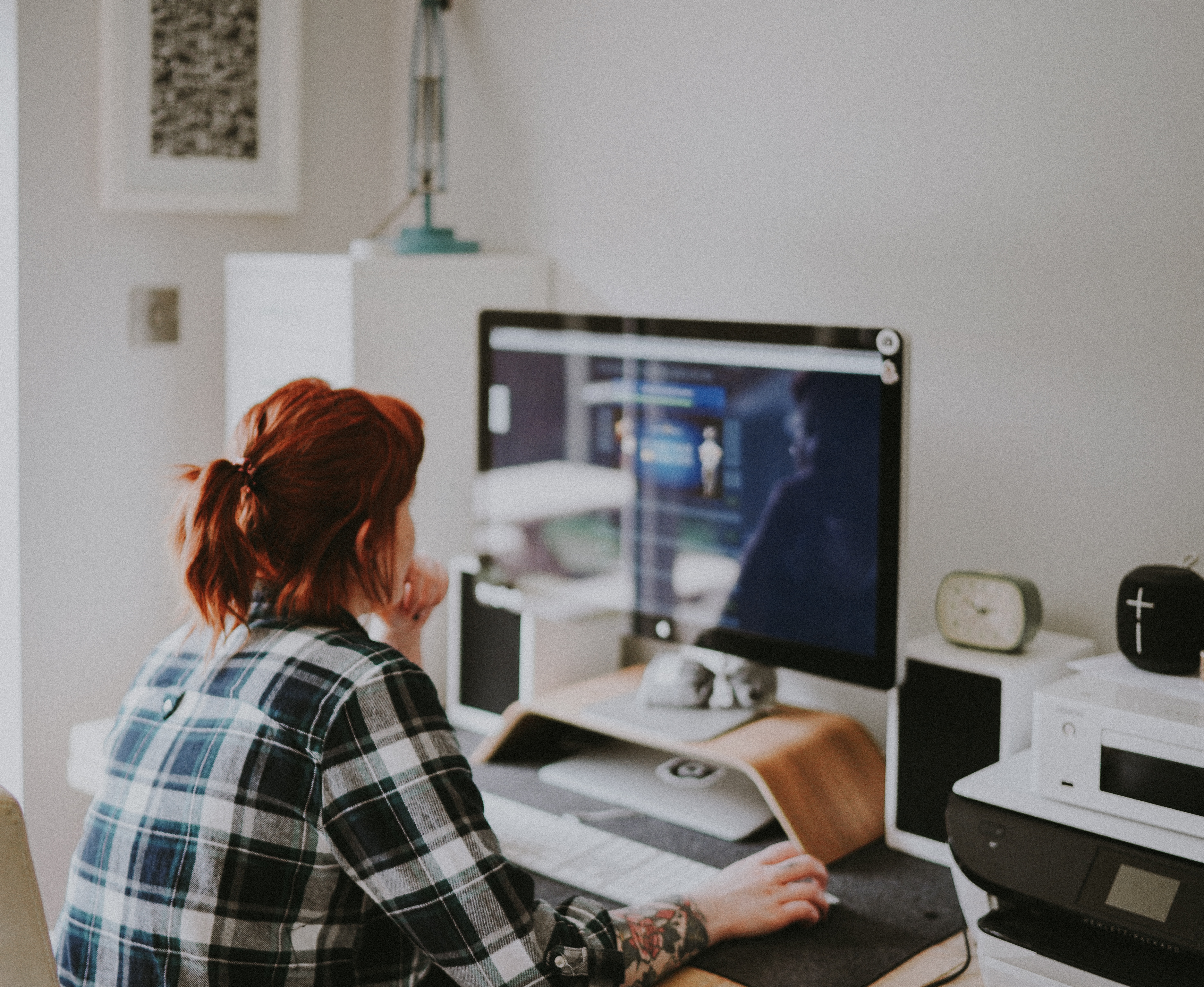What time is it?
I look at the clock. It’s 3:05pm.
Even though I only looked at it about twenty minutes ago, it feels like an hour.
I sigh and rearrange my desk. What can I do now?
I’m pretty tired, I’ve been in the office since 8:30,(but up since 6:30am) and already had a couple of meetings, spent two hours in deep work on a project, and had my lunch, as well as sending off lots of emails, and going on a call.
Pretty successful and productive day, so far, I think.
But I still have two hours left on the clock. I’m not allowed to go home until 5pm, when my ‘official’ work period is over, and we’re all allowed to go.
So what do I do? Start that big task I was going to do tomorrow? But I don’t feel like it, and I don’t have enough energy. Can’t I go home and chill now?
I know, I’ll go and make a drink. That will kill 15 minutes.
Sound familiar?
This was literally my internal monologue for most days when I was working in a 9–5 employed office job. It went on for YEARS.
My day always dragged around that time, and time went slowly.
Finally, I decided to work for myself. I didn’t want anyone else deciding how I spent my time, it was stressing me out.
I needed to reclaim it.
Time can make us a slave
In the Western world, time rules our minds. It changes how we perceive things.
Matt Haig wrote a brilliant book, How to Stop Time. In a nutshell, the book tells us to ‘live in the present moment’.
“The longer you live, the harder it becomes. To grab them. Each little moment as it arrives. To be living in something other than the past or the future. To be actually here.
Forever, Emily Dickinson said, is composed of nows. But how do you inhabit the now you are in? How do you stop the ghosts of all the other nows from getting in? How, in short, do you live?”
― Matt Haig, How to Stop Time
Last month, I watched a brilliant discussion between the guys between the Ascend Podcast, and my guilty crush, the lovely Bruce Parry.
Bruce has visited and lived with many remote tribes around the world, and he talks about an Amazonian tribe that lives in the present moment so much that they have no real words to describe abstract time.
Bruce says of these remote tribes:
‘they feel much more empathically in tune with the environment… they have a much deeper sense of being in the space…they’re connected to themselves, they’re much more in their bodies, they’re not caught up in their heads like we are’
So we need to get out of our heads, and into our bodies.
It’s already begun to happen.
Mindfulness: the growing trend to slow down time
Why has mindfulness become the buzzword of the last few years?
Is it because we all know we should be living in the moment, but it’s just so difficult sometimes?
All the big corporates have embraced this trendy concept over the past few years. Apple and Nike have embraced mindfulness principles, and there’s countless TED talks on living in the moment.
Google have even taken it a step further, launching a whole ‘Search Inside Yourself’ Mindfulness Academy.
Even Thich Nat Hahn led a Google Workshop on mindfulness.
But is a mindfulness meditation practice effective if you’re thinking about your 100 emails in your inbox?
Or if you’re feeling the pressure to buy a house by a certain time?
Perhaps it’s not just about slowing down our minds. Perhaps it’s about slowing down our actions, too.

The eternal now
Eckhart Tolle’s bestselling book, The Power of Now, gives a firsthand account of a man that decided to have a different relationship with time:
“When you surrender to what is and so become fully present, the past ceases to have any power. The realm of Being, which had been obscured by the mind, then opens up. Suddenly, a great stillness arises within you, an unfathomable sense of peace.”
I had read this book, but I didn’t pay any attention to it, until I spent 10 days in silence, on a meditation course. It was only when I experienced this that it began to make sense to me.
Free from the shackles of having to do anything by a certain ‘time’, I experienced a totally different sense of reality, which I documented in a video, ‘Keeping your peace in a busy world’.
Unshackling ourselves from time
A couple of weeks ago I watched a beautiful video of a well known world traveller on Youtube that was hiking in Northern California, and didn’t have a timepiece for a few days, just taking in the lush surroundings instead.
‘It’s really cool how you come more into the moment, and forget about this mental linear concept of time, and ‘I gotta do this, and I gotta do that, and I gotta make sure I have time to get to the office…’ Gabriel, Living Without Time
The way we are approaching time is changing.
Remote work companies such as Buffer focus on outputs, not time spent at a desk.
The 4 day working week trial in New Zealand was a success, as was one UK’s company’s introduction of a midweek day off.
The world is starting to wake up to the fact that we don’t need a certain amount of time to produce something valuable — we just need the right amount of energy.
That’s why Deep Work is becoming so valued — because it takes a lot of energy. You can’t do a piece of deep work in 20 minutes, and you certainly can’t do it with a hurried mind.
Joel Gasgoine, the CEO of Buffer, has ‘Deep Work Wednesdays’ where he has little to no meetings and ‘ uses lengths of unscheduled time to read and reflect on high-level vision and strategy.’
Why does he do this?
Because the state of consciousness you are in is important in order to produce a certain result. A relaxed mind and body means increased creativity and ideas.
He frees himself from the constraints of time so his mind can become more free.
You can do the same.

Don’t trap yourself with time
We can’t just throw away our watches, diaries and calendars. That’s not how it works.
But we can free ourselves from the mental burden of time.
- We can free ourselves by ignoring what you think you should do by a certain time- not having to meet a certain life goal at a particular age, whether that’s getting married, having babies, travelling or buying your first home.
- We can have days where we live without time, like Sundays, where perhaps we have a digital detox or a ‘Digital Sabbath’ and aim to be completely present in our bodies, perhaps doing some bodily focused activities like gardening or yoga.
- We can start by giving ourselves better boundaries in relation to time, especially when we feel hurried, stressed or pressured by someone else. We know we could get the job done in one hour, but we tell our boss two hours because then we will be able to do more thinking around it and do a better job. To see what I mean, check out the difference between spending 10 seconds on drawing a picture of Spiderman vs 10 minutes.
We know that mental health is in crisis for many of the Western world. We have too much on our minds, too many thoughts to juggle, and too many activities, and not enough ‘time’ to do them in.
Perhaps it’s the relationship to time itself that we need to consider, and start making space for ourselves.
Give yourself the gift of letting go of time for a bit today.
You deserve it.

